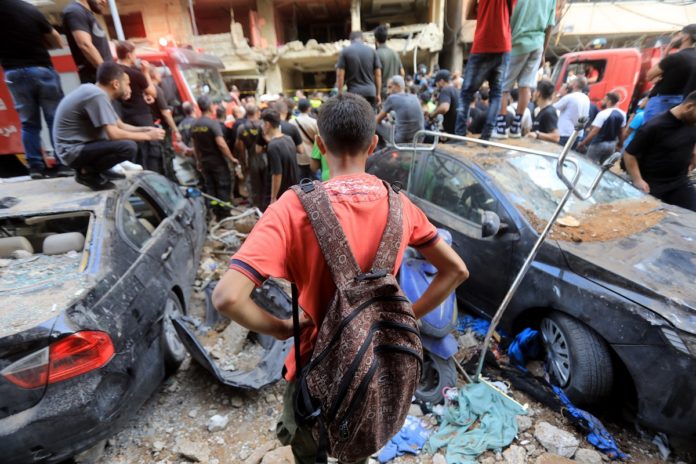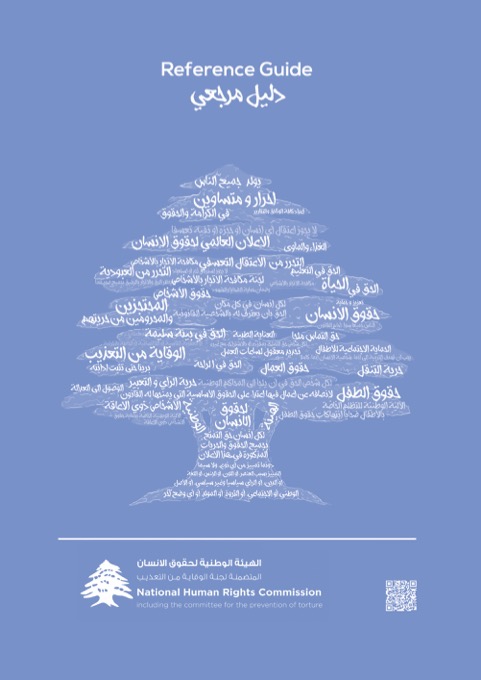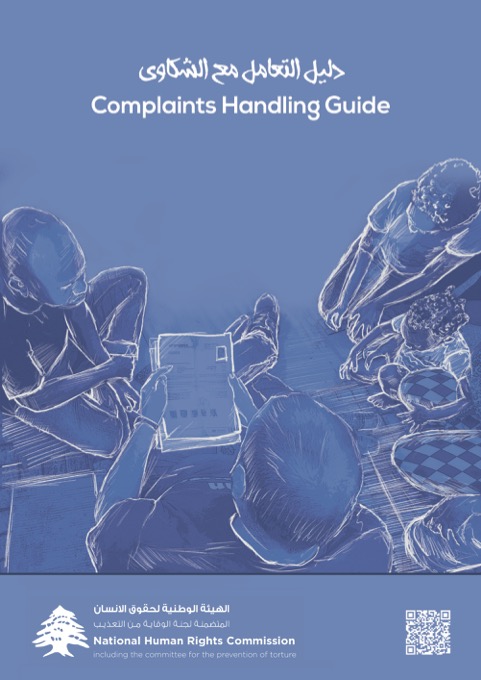هذه المقالة متاحة أيضًا بـ: العربية (Arabic)
UNDP warns of socio-economic crisis in Lebanon
amidst escalation of hostilities: The economy could shrink by 9.2 percent, compounding long-term vulnerabilities.
Escalating hostilities in Lebanon are exacting a profound toll on people’s lives and livelihoods. In addition, Lebanon’s economy could shrink by as much as 9.2 percent if these hostilities continue through the end of the year, according to a rapid appraisal released today by the United Nations Development Programme (UNDP). The risk of this precipitous decline in Gross Domestic Product (GDP) comes on top of a 28 percent contraction recorded between 2018 and 2022 and would erase gains in economic stability achieved in 2023.
Even if the hostilities were to cease by the end of 2024, the economy may further contract by an additional 2.3 percent in 2025 and 2.4 percent in 2026. Causes include a slowdown in expected economic activity, the anticipated slow pick-up of recovery and reconstruction efforts, and significant losses in capital across all sectors, including infrastructure, buildings, factories, equipment, and utilities. The slowdown in the economy may translate into a drop in public revenues by 3.2 percent in 2025 and 3.1 percent in 2026, exacerbating the government’s fiscal challenges and ability to maintain essential public services.
“Not only are the people of Lebanon facing the immediate threat to life, they are also facing rising poverty, mounting social instability and civil unrest. The impacts of the conflict on the economy and longer-term development in Lebanon are potentially very serious. What is most needed now is a ceasefire,” emphasized UNDP Administrator, Achim Steiner. “Lebanon now needs committed support from the international community, and this assistance must include both immediate humanitarian aid and more comprehensive support to social, economic, and institutional stability.”
The rapid appraisal “Economic and Social Consequences of the Escalating Hostilities in Lebanon” highlights that the risk of broader regional involvement and the advanced military technologies employed in 2024 distinguish the current conflict from earlier ones, leading to profound and far-reaching impacts on the country’s GDP, employment, and societal fabric. It warns that the scale of current hostilities, the geopolitical context, the humanitarian impact, and the economic fallout in 2024 are expected to be much greater than in the 2006 war which resulted in an 8 to 10 percent drop in GDP (loss of US$ 2.5 billion to US$ 3.6 billion).
Lebanon’s Human Development Index (HDI) has already been affected by the economic crisis the country has been experiencing since 2019, and while the effects of such crises typically take years to reflect on the HDI, the consequences of current hostilities will affect both the present and coming generations.
“We are supporting the people of Lebanon through Government-led response efforts to ensure continued provision of essential basic services. There are increasing needs for all those affected by the escalating conflict, and UNDP’s focus is on displaced people and the local communities hosting them,” said Blerta Aliko, UNDP Resident Representative in Lebanon. “These efforts are vital to preserve social stability and prevent further escalation of conflict, which must remain our priority.”
According to the rapid appraisal, the conflict presents profound short-term economic implications, including significant contraction in key sectors, such as tourism, agriculture, manufacturing, trade, and other services. The disruption of trade routes and supply chains, direct shelling, and reduced consumer demand has forced a significant mass of business activities, particularly micro, small, and medium-sized businesses, to close or suspend operations. UNDP estimates that rising unemployment will affect approximately 1.2 million workers across the country. The unemployment rate may increase to a staggering 32.6 percent by the end of the year.


